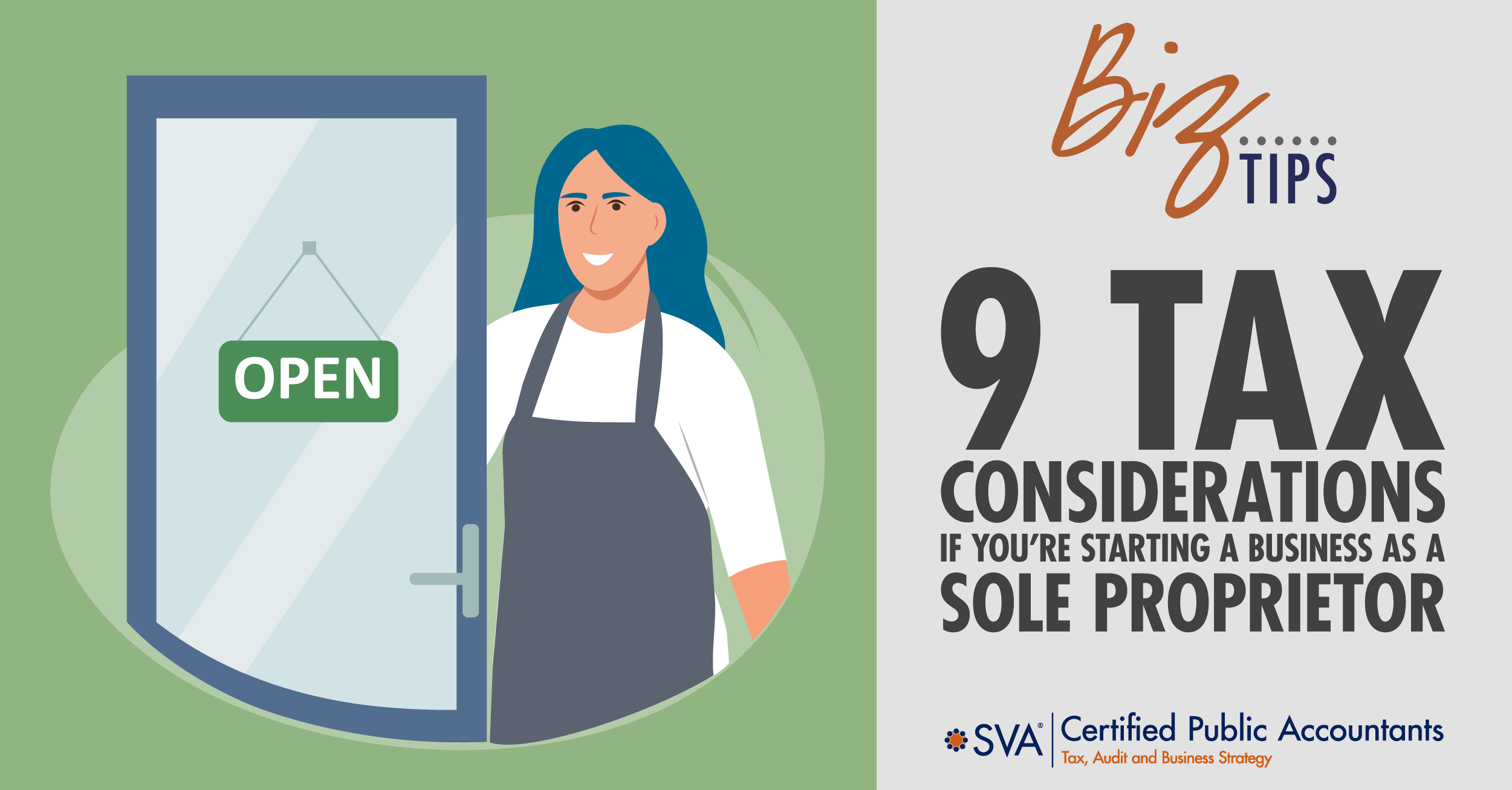When launching a small business, many entrepreneurs start out as sole proprietors. If you’re launching a venture as a sole proprietorship, you need to understand the tax issues involved.
9 Considerations for Sole Proprietors
Here are nine considerations.
1. You May Qualify for the Pass-Through Deduction
To the extent your business generates qualified business income, you’re currently eligible to claim the 20% pass-through deduction, subject to limitations. The deduction is taken “below the line,” meaning it reduces taxable income, rather than being taken “above the line” against your gross income.
However, you can take the deduction even if you don’t itemize deductions and instead claim the standard deduction. Be aware that this deduction is only available through 2025, unless Congress acts to extend it.
2. You Report Income and Expenses on Schedule C of Form 1040
The net income will be taxable to you regardless of whether you withdraw cash from the business. Your business expenses are deductible against gross income and not as itemized deductions.
If you have losses, they’ll generally be deductible against your other income, subject to special rules related to hobby losses, passive activity losses, and losses from activities in which you weren’t “at risk.”
3. You Must Pay Self-Employment Taxes
For 2024, you pay self-employment tax (Social Security and Medicare) at a 15.3% rate on your net earnings from self-employment up to $168,600, and Medicare tax only at a 2.9% rate on the excess. An additional 0.9% Medicare tax (for a total of 3.8%) is imposed on self-employment income in excess of $250,000 for joint returns, $125,000 for married taxpayers filing separate returns and $200,000 in all other cases.
Self-employment tax is imposed in addition to income tax, but you can deduct half of your self-employment tax as an adjustment to income.
4. You Generally Must Make Quarterly Estimated Tax Payments
For 2024, these are due April 15, June 17, September 16 and January 15, 2025.
5. You Can Deduct 100% of Your Health Insurance Costs as a Business Expense
This means your deduction for medical care insurance won’t be subject to the rule that limits medical expense deductions.
(Download Video Transcript)
6. You May Be Able to Deduct Home Office Expenses
If you work from a home office, perform management or administrative tasks there, or store product samples or inventory at home, you may be entitled to deduct an allocable part of certain expenses, including mortgage interest or rent, insurance, utilities, repairs, maintenance, and depreciation. You may also be able to deduct travel expenses from a home office to another work location.
7. You Should Keep Complete Records of Your Income and Expenses
Specifically, you should carefully record your expenses to claim all the tax breaks to which you’re entitled. Certain expenses, such as automobile, travel, meals, and home office expenses, require extra attention because they’re subject to special recordkeeping rules or deductibility limits.
8. You Have More Responsibilities if You Hire Employees
For example, you need to get a taxpayer identification number and withhold and pay over payroll taxes.
9. You Should Consider Establishing a Qualified Retirement Plan
The advantages are that amounts contributed to it are deductible at the time of the contributions and aren’t taken into income until they’re withdrawn. You might consider a SEP plan, which requires minimal paperwork.
A SIMPLE plan is also available to sole proprietors and offers tax advantages with fewer restrictions and administrative requirements. If you don’t establish a retirement plan, you may still be able to contribute to an IRA.
Turn to Us
Contact us if you want additional information regarding the tax aspects of your business, or if you have questions about reporting or recordkeeping requirements.
© 2024

